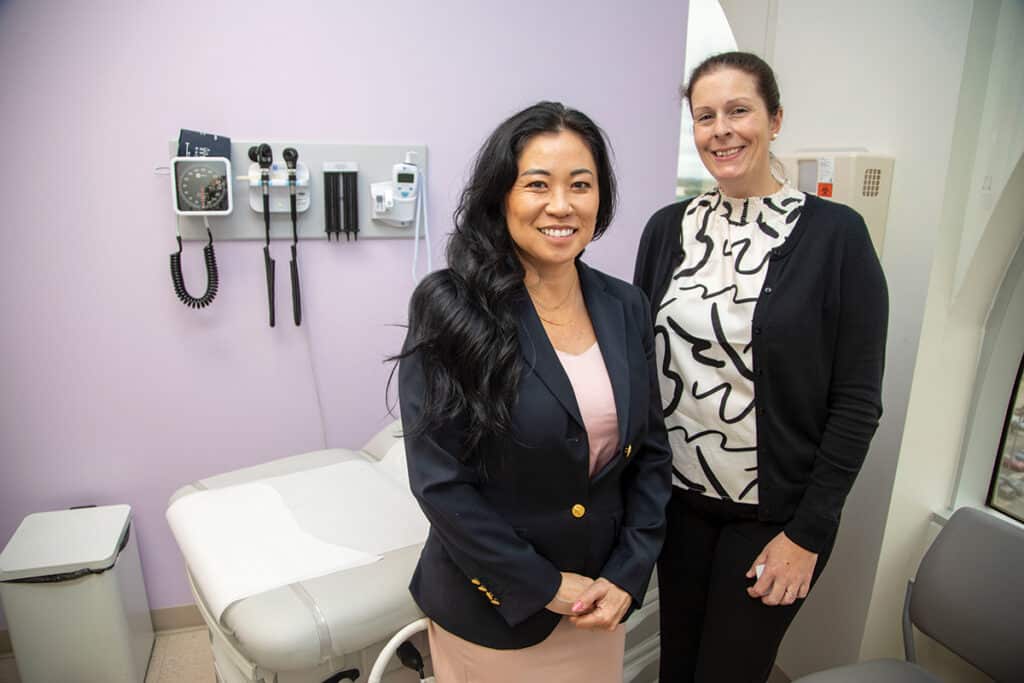
Have you or a loved one been diagnosed with Type 2 diabetes or with pre-diabetes? According to the CDC, 38% of adults ages 18-64 have pre-diabetes, and as many as 70% of these adults will progress on to develop diabetes in their lifetimes (based on data from the American Diabetes Association). Being overweight or having obesity greatly increases your risk of developing insulin resistance, which is the underlying cause of pre-diabetes and Type 2 diabetes.
The CDC suggests that less than half of patients with pre-diabetes are aware of their diagnosis. I believe these numbers are far higher than what has been reported, as 3 out of 4 of the new patients I evaluate for weight loss have pre-diabetes, and many of them have no idea about this diagnosis nor the significance of their condition.
Many healthcare providers are under-screening and under-diagnosing this completely reversible disease. Simply checking a fasting blood sugar is not enough, and many providers stop there, inadvertently overlooking pre-diabetes in their patients.
Checking a patient’s Hemoglobin A1C through a simple, non-fasting blood test that measures an average blood sugar over a 90-day period of time is recommended to screen for pre-diabetes/diabetes. Listed below are some other common signs and symptoms that indicate a patient may have pre-diabetes or Type 2 diabetes:
- Elevated triglyceride level
- Low HDL cholesterol
- Elevated fasting insulin
- Darkening of skin folds
- Skin tags
- Frequent infections, especially skin and bladder
In my practice, we utilize a comprehensive approach to treat weight gain and obesity. I often see patients with a completely normal hemoglobin A1C, but with fasting insulin levels that are 2-4 times (or more) higher than normal.
In order for the human body to function optimally, blood sugar levels need to stay within a pretty tight range: between 70-100 mg/dL. Our bodies can tolerate temporary elevations in blood sugar based on what we are eating or drinking, but left unchecked, this leads to the release of higher and higher insulin levels, which can drive weight gain. Insulin is essential to life, but when in excess, it can wreak havoc on the body.
Which foods cause our blood sugar (and hence, insulin) to go up the most? Sugar is an obvious culprit, but that’s not all. Overconsumption of foods that are highly refined, processed, grain-based carbohydrates and starchier foods such as potatoes, corn, bread, rice, crackers, chips, baked goods, pasta, instant oatmeal, and some cereals can also contribute to insulin resistance.
There is good news, though! Pre-diabetes and Type 2 diabetes can often be reversed (or at least dramatically improved) with adequate weight loss (sometimes as little as 5-10%). Here are some steps you can take starting today to improve your health and stop the damage caused to the body by elevated blood sugars and insulin resistance:
- Decrease the obvious sugar in your diet: sweets, sweetened beverages (soda, sports drinks, juices).
- Decrease highly refined-processed, starchier carbohydrates.
- Increase your intake of whole grain, complex carbs when you do reach for grain-based carbs.
- Increase your protein at mealtimes – most people are under-consuming this vital macronutrient, made up of amino acids, which are the building blocks of life.
- Embrace sources of healthy, essential fats and fatty acids: fish, olives and olive oil, nuts and nut butters, and avocados.
- Consider checking your blood sugar (including using a continuous glucose monitor).
- Increase your movement – muscle tissue is what utilizes the most glucose (sugar), so moving more and using our muscles WILL decrease blood sugar.
- Get a good night’s sleep! There is a strong correlation between poor sleep (hours AND/OR quality) and insulin resistance.
- Address your stress: High stress levels can also raise blood sugars.
- Consider medication. Talk to your healthcare provider about medications, which can be a very effective addition to your overall treatment plan.
- Consider consulting with a dietitian, obesity medicine specialist or endocrinologist with expertise in overweight/obesity, pre-diabetes, and diabetes.
By partnering with an experienced provider who can oversee your care, in conjunction with small changes in your daily routine regarding nutrition, physical activity, and other healthy lifestyle modifications, with or without the use of FDA-approved medications, it IS POSSIBLE to reverse both diabetes and pre-diabetes.
About the author:
Board-certified in Family Medicine and Obesity Medicine, Dr. Jenny Seger focuses on utilizing prescribed nutrition and lifestyle plans in addition to pharmacotherapy and/or surgical interventions to improve the health and wellness of her patients. Visit DrJennySeger.com for more information.




